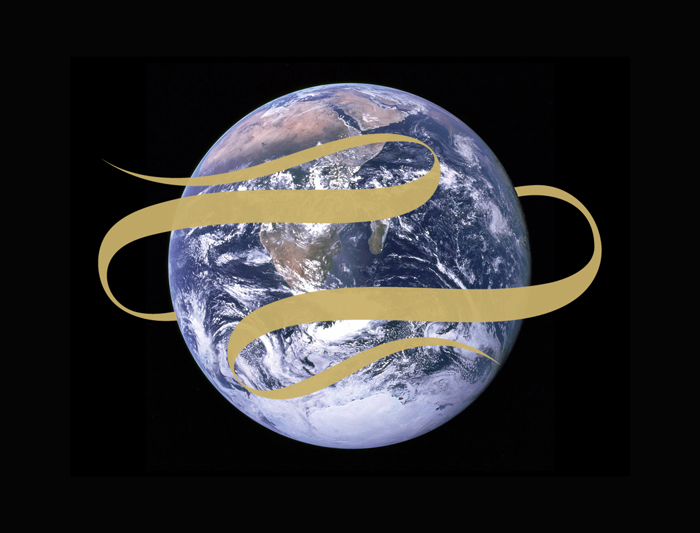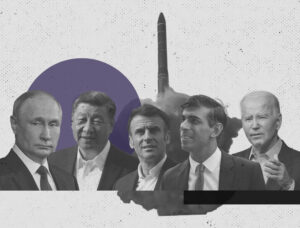
Imagination Imprisoned
As the COVID-19 pandemic subsides, it is unclear what lessons will be drawn by leaders and publics worldwide. Entrenched power, wealth, and conventional wisdom have demonstrated the overwhelming resilience of the global order, even while COVID-19 continues to ravage many populations. Notable exceptions reveal either extreme solidarity or discrimination, efficient competence or irresponsible partisanship, and reversion to the status quo occurred at all levels of social organization from the village to the world, especially the sovereign state.
Rich and powerful governments cornered the vaccine market, allowing a draconian market-driven logic to drive distribution, privileging intellectual property rights and technical know-how, leading to grotesque disparities in vaccine access between the global North and South. Clearly, no country will be safe from the virus, or its variants, until all humans are vaccinated. Never have the self-interest of the species clashed so vividly with the need for global solidarity.
Why did such an ethos of human solidarity not materialize and how can we correct course?
A people-first approach to the global emergency would have transcended profit-making domains at all phases of COVID prevention, treating it as a global common, leading to the heightened prospect of profound social transformation, and restoring confidence that the human species is capable of meeting the challenges of the Anthropocene. Instead, the pandemic revealed the appalling strength of statism and private sector interests—yet another lost opportunity for the human species to awaken from its prolonged slumber before it is too late.
The Great Transition
Here is the question: can the peoples of Earth, doomed to share a ravaged planet, learn to live together in ways that encourage our species to flourish? The concept of a “Great Transition” invites us to reimagine the future by exploring the possible and letting go of the trappings of the present, without wishful thinking. For what was science fiction a generation ago is increasingly possible, even feasible in the near future. Now is the opportune time to explore the seedlings of possibility sprouting around us, inscribing a more hopeful mapping of the human future.
For some, the failure of such a perspective in the face of today’s pandemic is masked by the new-found generosity of some countries as vaccine supplies exceeded their national demands. Motivated by philanthropy rather than solidarity, some countries shipped vaccine to others in need—with recipients often selected for diplomatic advantage. Is charity towards those less fortunate a weak form of solidarity, even if filtered by political leaders motivated by selfish interests?
On What is Possible
“Some men see things as they are and say ‘why?’ I dream of things that never were and ask ‘why not?’” — George Bernard Shaw
Politics as “the art of the possible” is unacceptable if the “possible” is still circumscribed by stasis, and “change” merely tweaks policy at the margin, leaving structures of state and market essentially untouched. Without removing these constraints, the Great Transition will be stymied. So the first challenge is to find effective ways to subvert and transform these primordial structures. Meeting it requires liberating the mind from ingrained conventions that solidify the very ideological biases of modernity.
Carefully considering our own lives, we can appreciate how many epochal happenings previously deemed “impossible” only seemed possible after the fact. Such tyranny of the status quo is Winston Churchill’s derisive attitude toward Gandhi in the early stages of Indian nationalism. Dismissing any threat to colonial rule, Churchill described Gandhi as a “malignant subversive fanatic” and “a seditious Middle Temple lawyer, now posing as a fakir …striding half-naked up the steps of the Viceregal palace.” Thus, the great British war leader displayed his attachment to a Western understanding of power, showing little insight into historical circumstances vulnerable to anti-colonial nationalism.
Similar patterns of the seemingly impossible actually happening are seen in the peaceful ending of the Cold War, the collapse of the Soviet Union, the American defeat in Vietnam, China’s rise from mass impoverishment to prime geopolitical challenger—threatening Western mastery of innovative technology such as AI, G5 connectivity, robotics, and genetic engineering—and the abandonment of apartheid by South Africa in the face of nonviolent resistance from within and anti-apartheid solidarity from without.
These examples demonstrate that our understanding of the possible has been artificially circumscribed to protect the interests of various elites and the status quo, making it seem reckless and futile to mount structural challenges, however justified morally or bio-politically. Such foreclosures of imagined futures have been key to preserving institutions like slavery, discrimination and warfare, however limited in scope to specific locales or policies. The uniqueness of the Anthropocene is that we restrict the possible by clinging to unsustainable and dysfunctional structures and modes of behavior, leaving unanswered the question of finding more viable ways of organizing life on the planet and living together in a manner that protects future generations.
Despite what science and rationality tell us about the future, our leaders—indeed, most of us—give scant practical attention to what is needed to preserve and improve the life prospects for future generations, as seen with increasing clarity and alarm by many in the younger generation. Responsible anthropocentrism in the 21st century should incorporate a sense of urgency, a “politics of the impossible,” a necessary utopianism, a staunch belief in the attainability of the Great Transition. We must abandon the ideological construct that binds humanity to a system self-destructive for the species and its natural habitat.
We have been scientifically conditioned to an epistemology that asserts the limits of useful knowledge, an Enlightenment ideology that constrains productive intellectual inquiry. True, knowledge must be grounded on scientifically verified evidence, but the bias against subjectivity discourages normative inquiry and advocacy, which is dismissed as “unscientific.” Contemporary scholar Tu Weiming has powerfully criticized the impact of “instrumental rationalism” on the capacity of Western civilization to embrace the value of empathy, so vital for human dignity and humane governance.
A moral epistemology would achieve responsible anthropocentrism, exploring right and wrong, distinguishing between desirable and diminished futures, not as opinion, but as the underpinnings of “normative knowledge.” Universities, split into specialized disciplines and privileging the Enlightenment paradigm, seem oblivious to the need for a holistic understanding of the complexities and solidarities required for humanity to extricate itself from present structures that strangle possibilities and fragment the human experience.
It may be helpful to distinguish “the feasible,” “the necessary,” and “the desirable” to illuminate the pursuit of the “impossible.” Thinking of the “feasible” often renders us incapable of achieving the “necessary” and “desirable.” For without pursuing “the desirable” how can we mobilize the capabilities needed to realize “the necessary”?
If existing conditions persist, the bio-political destiny of the human species seems destined for dark times. Before the nuclear age, we ignored the future and addressed the material, security, and the spiritual needs of bounded communities. Now we must not fail to attend to the whole, or the parts will perish and destroy one another in the process. St. Francis had words for such an emancipatory path: “Start by doing what is necessary, then what is possible, and suddenly you are doing the impossible.”
Traditional Worldviews
The search for alternative worldviews not defined by states, empires, or markets has led many to turn toward pre-modern cosmologies of native peoples. Recovering earlier worldviews might be instructive, but cannot liberate the contemporary world. Retreat to the pre-modern past is not an option, except as a result of a planetary calamity.
Instead of localism and tribal community, we need to move forward by engaging human community, and affirm that such strivings are indeed possible. By reimagining our place in the cosmos, it becomes our worldview, a patriotism for humanity in which the whole becomes greater than the part, and the part is no longer the dominant organizing principle of life on the planet.
Understanding the distinction between part and whole enables us to begin a transformative journey. Parts are enclaves of space on world maps, and the separate identities of race, gender, class, belief, and habitat. An ethos of human solidarity would not eliminate differences, but rather complement them with a sense of commonality, while sustaining their separate and distinctive identities and generating new modes of being for addressing the challenges of transition.
Thus, the reality of global solidarity must command the imagination, rather than continue to inhabit hidden echo chambers far from the domains of policy formation.
Global Solidarity
Without global solidarity, the structures of the status quo will remain too deeply entrenched to allow a cooperative, peaceful, just, and ecologically mindful world to emerge. Such a benevolent future is blocked in government and corporate board rooms, where a paralyzing blend of ignorance, denial, incrementalism, and unconscious respect for fragmenting boundaries that make global solidarity seem “impossible.”
Global solidarity would benefit humanity functionally, ethically, ecologically, and spiritually. Its functionality is immediately obvious from a problem-solving perspective, whether it is vaccine diplomacy, climate change, or nuclear weapons. Clearly, only awareness of human solidarity will allow us to treat vaccines as a global common, rather than a source of national diplomacy, international property rights, and pharmaceutical profits; or displace national and financial interests for the general global well-being; or find the courage to live without nuclear weaponry, by framing security as the well-being of people and not the shortsighted hegemony of a few governments and their self-regarding elites.
Global solidarity would enhance the quality and nature of global governance. Even if the defining unit of solidarity remains the sovereign state rather than the human being, global citizenship could underpin a more robust United Nations, whose members seek not to compete but to fulfil the shared goals of its Charter. Militarization would free the world’s economy for peace-building processes. By broadening global identity, we could preserve biodiversity and see the rainforests and polar regions as indispensable to our common heritage. Heightened empathy would foster a tendency to take human suffering seriously, including poverty, displacement, and the victimization that follows natural disasters and political strife.
The greatest benefits of global solidarity, with its shift of loyalties and identities, would be ethical and spiritual. The enmities of race, nation, religion, gender and class would lose primacy, perhaps leaving the cosmos as the great “other” of the earth.
Do We Have the Time?
The ethos of global solidarity led idealistic jurists in 1976 to draft the Declaration of the Rights of Peoples. Many efforts have been made since to hold states and their leaders symbolically accountable for violations of international law. Many civic initiatives have been organized in defense of nature and peace. Recently, Bolivia and Ecuador enacted a text devoted to the Rights of Mother Nature. New Zealand legally recognizes animals as sentient beings with legal entitlement to decent treatment. Another movement regards “wild rivers” as having rights, prohibiting the construction of hydro-electric dams. Civil society groups in Europe and South America have formed the International Rights of Nature Tribunal, to protect natural habitats from predatory human behavior.
Within the orbit of UN activities, many quiet undertakings involving health, children, food, cultural heritage, and environment proceed in an atmosphere of global solidarity, interrupted by only occasional intrusions from the more conflictual arenas of the Security Council and General Assembly. There are no vetoes, and partisanship is discouraged.
Within the cultural bosom of world civilization and world religion have been subversive ideas of global solidarity, with philosophic and religious affirmations of unity in ideas of “cosmopolitanism” garnering increasing adherents. Growing attachments to nature give rise to loyalties that find no place on world maps or national boundaries. Fears of future nuclear catastrophe and ecosystem collapse expand awareness that present arrangements are unsustainable, allowing greater receptivity to more inclusive forms of organizing life on the planet. We cannot know the future, but this century of interdependent risks and hopes has widened the awareness of human solidarity. We know what is to be done and the urgency of the quest.
RELATED
Richard Falk on the Future of International Cooperation
In the effort to contribute to the creation of a more peaceful and secure world there are few voices that have been as pioneering as our guest today. Richard Falk and I discuss why international cooperation is vital today, COVID-19, and the future of global governance.


